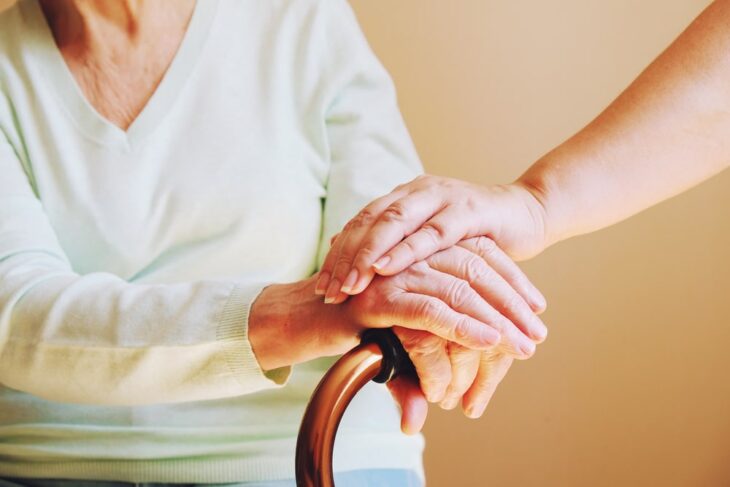As the world continues to age, so do the people living in it, and the population of senior citizens continues to grow annually. As a result, the dynamics are changing, and the aging generations are uncomfortable with nursing homes as they are more prone to feelings of loneliness and isolation. This has led them to age in place.
Aging in place is a term used for elders who prefer staying at home, rather than moving into care facilities or nursing homes. To meet this growing trend, home care packages are becoming the best alternatives. Let’s get a better look at what these home care packages are: https://absolutecarehealth.com.au/home-care-packages/.

Source: ehmsolutions.org
Contents
What are Home Care Packages?
Home care packages (HCPs) are fixed amounts of allocated money from the government offered to elders to provide services at their own homes to continue living independently. An independent agency assesses these services to determine the amount of money that the government will provide to cater to their personal needs.
There are four levels of Home Care packages for different care needs, and services will also depend on the level of the package granted. The services White Oak has to offer are extensive and designed to support the well-being goals of the individual receiving them. Home care packages are the respectful, ‘extra helping hand’ that comes with so many advantages.
Although the government provides an allocated budget for aged sectors of the community, they do not directly receive the cash in hand. Instead, they are given codes in which they take to a government-recognized service provider whom they can negotiate with to decide how the money will be spent.
Moreover, the money allocated for HCP cannot be spent on general costs of living such as bills, groceries, rent, and mortgage payments. Other expenses not covered by HCP include entertainment and leisure costs such as tours, classes, and travel and accommodation. The money is only funded for services catering to basic and essential needs.

Source: accuratehomecare.com
What are the Packages offered?
As stated earlier, there are four levels of HCPs. Level 1 is the most affordable, while level 4 can be more costly as it provides more services. Here are the different levels of home care packages and the benefits each group provides:
Level 1 Home Care Package
These packages support aged people with basic care needs. Those granted with a level 1 HCP are independent. They can also perform daily tasks on their own. HCP level 1 offers 2-3 hours of support every week. The hours rendered can also vary depending on the needs.
Some standard services offered at this package are:
- Personal Assistance
- Social support
- Meal Prep
- Personal Care and Hygiene
- Pet Care

Source: khn.org
Level 2 Home Care Package
Level 2 aims to support people with low-level care needs. This means that aged people can still perform various tasks at home by themselves. However, they require a bit of help with basic tasks. At HCP level 2, the hours rendered is at 4-5 hours of care and support. Services offered at this package include:
- Personal Care
- Domestic assistance
- Some Nursing Care
- Basic Care Equipment
- Home and Garden Maintenance
- Meal preparation
- Social support
- Transportation
Level 3 Home Care Package
At level 3, aged people with intermediate-level may need assistance. Generally, clients that require Level 3 HCP are given more personal care, nursing, and allied-health support for 9-10 hours weekly. All the services included with HCP levels 1 and 2 are included, along with these services:
- Nursing support
- Allied-health support
- Household Assistance
- Help with changes to memory and/or behavior
- Medication Management
- Assistance with Aid and Appliances

Source: bizinsure.com
Level 4 Home Care Package
This package is often allocated for people with health conditions such as seniors living with dementia or Parkinson’s disease. These conditions require a lot of care and support from professionals. Care providers that offer HCP level 4 often render 14-15 hours per week of service.
Services in this package are the same as the other three levels, but more options are included dedicated to aged people with complex care needs. Thus they can receive assistance such as:
- Personal Care
- Help with Chores
- Nursing Care
- Medication management
- Meal Prep
- Help with a specific conditions (Alzheimer’s, Parkinson’s, or other debilitating conditions)
- Allied Health Support
- Social Support
- Transportation
Who Provides Home Care Services?
People who work in-home care often go by many titles such as carer, caregiver, or community care assistant. A more formal title is called a Personal Care Aide. However, in general terms, they are often called In-home caregivers. Despite the various names, they all have the same job to assist the more needy, especially aged people.
These caregivers who provide health and support services are dedicated, qualified, and experienced care workers such as registered nurses and health-allied professionals. In-home caregivers work an average of 8-10 hours daily but not necessarily in consecutive hours.

Source: databridgemarketresearch.com
Why are Home Care Packages Important?
There is nothing wrong with taking responsibility for your well-being in different ways. Still, there are times when a simple task can be overwhelming and challenging to execute, especially for an older person. Hence, home care packages are granted so that aged people can be assisted with a different range of services that tend to their needs and goals.
It is also an excellent option of help for elderlies who wish to continue living at their homes and still be independent without applying to a nursing home. In addition, it is excellent for aged people with medical conditions, assisting and treating them with their medications at the comforts of their home.
Takeaway
With aging comes wisdom and knowledge. However, aging also comes at a price. Most of our bodies can ache and some of us won’t be able to do things like we used to when young. In most countries, people who are at this stage often move into care facilities.
However, people are seeing that HCPs or Home Care Packages are becoming the next best thing to moving out of their homes. With HCPs, elders don’t need to rely too much on their caregivers as it encourages them to practice independent living while receiving support in their homes.
